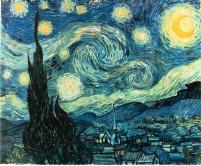 我很爱看中央电视台的“实话实说”节目,名字就好,“实话实说”,多不容易!实话的反面是谎言。“实话实说”有一次话题就是针对谎言的,不过针对的是孩子们的谎言。 我很爱看中央电视台的“实话实说”节目,名字就好,“实话实说”,多不容易!实话的反面是谎言。“实话实说”有一次话题就是针对谎言的,不过针对的是孩子们的谎言。
嘉宾中有一位是心理研究所的教授,他说,他们从1991年到1994年,在全国7个省13个城市430个家庭进行调查,发现从3岁开始,就有52%的孩子开始说谎了。随着年龄增长,比例越来越高,到9岁时,说过谎话的孩子已经上升到70%!谎言是随着年龄成正比,还是到了一定的年龄段人们便突然纷纷变得诚实起来了呢?从主持人和嘉宾的问答来看,给人的感觉,答案好像是后者,好像成人都不撒谎。因为当嘉宾被问到或自己谈到有无撒谎的经历时,虽然都说有过这样的经历,但都是在小时候有过:一个说是在13到14岁,一个说是在7岁到8岁,一个说是在解放前夕有过撒谎的经历。可是长大成人之后呢?尤其是最近和现在呢?就再也没有说过谎吗?真的是这样吗?
撒谎和利害有关,说谎者总是为趋利避害;如无利害,扯谎作甚?而人在幼小之时,天真无邪,不明利害,当然也就无需撒谎。因此小孩也极易受骗,对大人的话总是深信不疑。有一次乘火车,对座是一位母亲和她的5岁男孩。长途苦旅,我变魔术逗男孩玩耍。我将男孩的帽子摘下,小施手技,作往窗外投掷状。男孩问:“我的帽子呢?”我说:“扔掉了。你吹口气!”男孩就朝我的手吹了口气。不一会儿,帽子又出现在我手中。男孩瞪大眼睛,又惊又喜,高兴得扑到我身边,不由分说地就摘下我的帽子往窗外远远地扔去。这时该轮到我瞪大眼睛了!男孩高兴地说:“叔叔,你吹一口气!”还吹气?我看我的公文包还搁在窗边的小长桌上,我倒吸一口,连忙紧紧按住,并将窗关上。你说,这么天真的小孩,无世故之心,无机变之巧,能撒谎吗?
(摘自1997年7月12日《新民晚报》。)
很爱看:love watching...比like watching...very much简洁。
中央电视台的……节目:“中央电视台的”不必译成of CCTV,也不必译成CCTV's,英语里惯用的表达方式是CCTV programme。“实话实说”:这个节目的英文名字是Tell It Like It Is,但与“谎言”对照的“实话”只能是truth,因此这里译成To Speak the Truth。
名字就好:这句话的含意是‘且不说别的,这个节目有个好名字’,因此译文除了it has a very good name外,前面还要加上Among other things。
“实话实说”:原文的引号译文里可以不要,因为这里说的不是电视节目“实话实说”,而是说实话这件事。
多不容易:What a difficult thing it is / How difficult it is...!
“实话实说”有一次话题:英语忌讳重复,这里的“实话实说”指电视节目,最好译成in the programme。“有一次话题”的意思是“讨论过的话题之一”,即One of the topics discussed。
针对:汉语里这两个字很自然,译成英语则显得多余。
不过针对的是:从上下文来看,这里按“确切地说”(to be exact)理解更准确。
嘉宾中:“嘉宾”的“嘉”和“贵宾”的“贵”常没有什么实在的意思,只是起凑足两个音节的作用,因此译成the guests即可。
在……家庭进行调查:也就是“调查了……家庭”(conducted a survey of...families)。社会调查或普查性质的调查是survey,追根究底性质的调查是investigation。
年龄增长:As they grew older比As their age increased自然。
孩子:这里指孩子的数目,因此英文得说the number of children。
上升到:reach或rise to。
随着年龄成正比:这里的意思是“与年龄成正比增加”(increase in direct proportion to age)。
纷纷:这里可按“全都”理解,译成all。
给人的感觉:这句话“人”是间接宾语,英文却习惯说one got the feeling that,以one作为主语。
后者:这里如果译成字面上对应的the latter,则指代的是前面的Or do people suddenly all become honest when they reach a certain age?这是问题而不是答案,因此得译成a "yes" answer to the second question。
好像:It was as if。
被问到或自己谈到:直译were asked or they themselves talked about很别扭,不如多费点笔墨,译成were asked whether they had ever lied or when they themselves talked about it。
有无撒谎的经历:也就是“是否撒过谎”(whether they had ever lied)。
都是:即“毫无例外”(invariably)。
有过:这里的意思是“发生过”(happened),主语可以是lying,也可以是it。
一个……一个……一个:One of them... another... and the third...。汉语在列举两三个同类事物时,惯用同一个指代词,不区分序列;英文则通常区分序列。
在小时候:即“在童年”(in their childhood)。
13到14岁:at the age of 13 or 14或between the age of 13 and 14。
解放:过去通常译成liberation,英语国家更常用的是the Chinese revolution。
前夕:on the eve of...或just before...。
有过撒谎的经历:冗余信息,可以不译。
长大成人:grew up。“成人”也是冗余信息。
就再也没有说过谎吗?:如果着眼点是童年之后(after childhood),这句话得译成过去时;如果着眼点是成年以来(since adulthood),则可以译成现在完成时。
真的是这样吗?:这里的意思实际就是“真的吗?”(Did they really?或Have they really?),不必拘泥于“是这样”这三个字。
利害:advantages and disadvantages“好处和坏处”或gains and losses“得与失”。
总是为:意思是“动机总是”always motivated by...。
趋利:这里的“趋”可以理解为gain/seek“谋取”。由于谈的是动机,所以最好说the need / desire to gain advantages。
作甚?:为什么?译文why bother...?含有“费心”的意思。
而人在幼小之时:如果译成时间状语When people are very young,那么主句的主语they复指的是people;不如译成话题As for young children,这样they复指的是young children。
不明:也就是“意识不到”(unaware of)。
因此:这里应当理解为“因为同一个原因”(For the same reason),而不应该按照字面意思译成therefore。
对……深信不疑:也就是“拿大人的话当真”(take the words of adults very seriously)。
乘火车:即“在火车上”(on a train)。
对座是……:即“……坐在我对面”(sat facing / opposite me)。
长途苦旅:意思是“为了破除长途旅行的单调”(to relieve the monotony of the long journey)。
变魔术:英文与magic搭配的动词是play。
逗……玩耍:entertain。
小施手技:即“耍了一个小把戏”(played a small trick)。
作……投掷状:pretend后面的throw要用完成态。
你吹口气:汉语祈使句带主语的情况比较普遍,英语通常不带,译成Just blow即可。
朝我的手:英语是on my hand。
不一会儿:In an instant / Within seconds。
瞪大眼睛:英文表示吃惊,说with his eyes popping(眼睛都要瞪出来了)。这里不能译成with his eyes (wide) open。
高兴得:这三个字不必译,因为前面已经有了“喜”。
扑:这里可以理解为jump。
不由分说地:这里的意思是“不容我解释”(before I was able to explain)。
远远地:即“扔向远方”(into the distance)。
叔叔:按照英语国家习惯,这里的称呼应该是sir。
倒吸一口:完整的表达方式是“倒吸一口凉气”,意思是“突然感到害怕,惊讶”。英语与之对应的是gasp。
连忙:immediately。
紧紧按住:pressed my hand firmly on it。
无世故之心:即“不世故”(being not worldly-wise)。
无机变之巧:即“不会玩聪明把戏”(unable to play clever tricks)。
能:这里的“能”指“有能力”(is capable of),不应译成表示可能的can。
| 
![]() 本网站由北京信息港提供网络支持
本网站由北京信息港提供网络支持

![]() 本网站由北京信息港提供网络支持
本网站由北京信息港提供网络支持